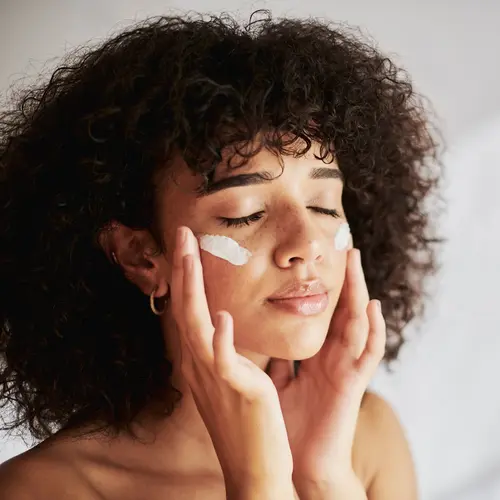Cosmetic preservatives known as parabens have been under close scrutiny for years because of a possible link to breast cancer. This link isn’t strongly supported, but some people still have a fear of parabens.
Methylparaben is one of the most common parabens. You can find it as part of a paraben mix in most cosmetic products, where it prevents germ growth. It can also be found naturally in some fruits and may be used as a food preservative or an antifungal preservative.
Benefits of Parabens
Parabens mixed in cosmetics serve an important purpose: They prevent harmful mold, bacteria, and fungi from infecting your products. This helps protect you from infections. You might find them in things like:
- Makeup
- Moisturizers and lotions
- Hair-care products
- Shaving creams and gels
Parabens as preservatives. Preservatives are vital to cosmetics. The water, vitamins, and nutrients in our cosmetic products nourish our skin but also provide the perfect environment for microorganisms to grow.
Every time you use your cosmetic products, you introduce new bacteria to the container and product. Preservatives work hard to prevent the bacteria from growing, protecting you from infection or irritation and to prolonging the product's shelf life.
This doesn't mean that products without preservatives aren't safe. You may need to take extra precautions when using and storing your cosmetic products. Generally, cosmetics without preservatives are similar to fresh fruit and vegetables in terms of shelf life.
Most cosmetic products have multiple parabens. The four most common parabens in paraben mixes are:
- Methylparaben
- Ethylparaben
- Propylparaben
- Butylparaben
Your skin absorbs parabens in cosmetics, medications, foods, or drinks. But your body will soon get rid of (or excrete) them.
Preservatives like parabens in cosmetics don’t carry any special regulations. They are treated like all other ingredients and must be accurately labeled on the product. Cosmetic products and their ingredients don’t need approval from the FDA before hitting the shelves, so read the labels carefully if you want to know more about what you’re using.
About Methylparaben
Methylparaben works alongside other parabens to make your cosmetic products safer and improve their shelf life. If methylparaben is released into the air or exposed to sunlight for too long, it gets broken down.
Methylparaben also doesn’t appear to stay inside the body for long. In studies on dogs, infants, and adult males, methylparaben was fully excreted in 48 hours or less. This serves as some evidence that methylparaben doesn’t have long-lasting effects.
Methylparaben and Your Health
A study from 2004 found that breast cancer tumor samples had small amounts of parabens. This finding launched a new wave of scrutiny.
Research has not ruled out that parabens are carcinogenic, or capable of causing cancer, but there is also a lack of evidence that they do cause cancer. In fact, there isn’t definitive proof that parabens affect human health at all.
The hormone estrogen plays a role in breast cancer. Even if parabens act like estrogen for the purposes of breast cancer development, it’s a small role compared with the amount of estrogen produced by the ovaries.
In a variety of animal studies, methylparaben was dangerous only when it was ingested in high quantities. This resulted in weight loss, stomach damage, and congestion.
Methylparaben was not toxic in moderate to high doses. Animal studies showed no signs of:
- Pregnancy loss or birth defects
- Damage to sperm, testicles, or uterus
- Tumors
The amount of methylparaben used in animal studies is far more than what you encounter in your day-to-day life. In studies on the effects of methylparaben on humans, most of the negative outcomes were due to allergic reactions.
Paraben Allergies
A paraben allergy typically causes dermatitis. Symptoms include:
- Hives
- Itchiness
- Rash
- Flaking or peeling skin
- Swelling
Your doctor can diagnose a paraben allergy based on your medical history and a patch test. If you believe you may have a sensitivity to your cosmetics, stop using them and ask your doctor about a patch test for allergens. Your doctor can help isolate the cause of your sensitivity.
Avoiding Parabens
If you prefer to be cautious about methylparaben, look at the ingredients list on all of the products you use.
Companies are required to label their products accurately. Products without parabens will be labeled accordingly. Otherwise, look for any ingredients ending with “-paraben”.
Methylparaben may also be labeled as:
- Methyl 4-hydroxybenzoate
- Methyl paraben
- Methyl p-hydroxybenzoate
- Nipagin


